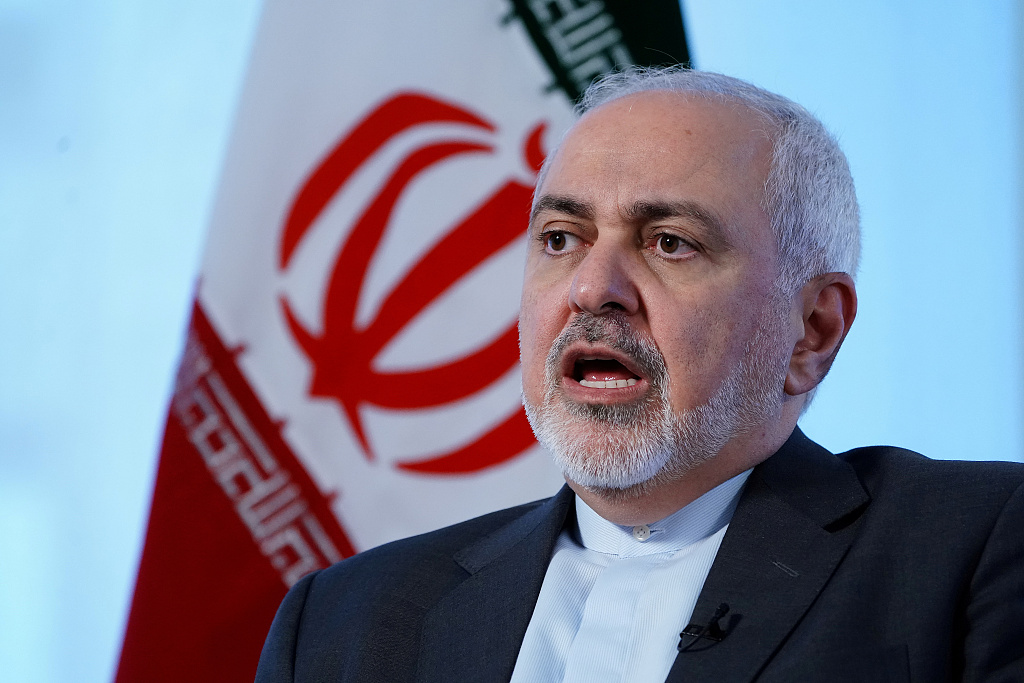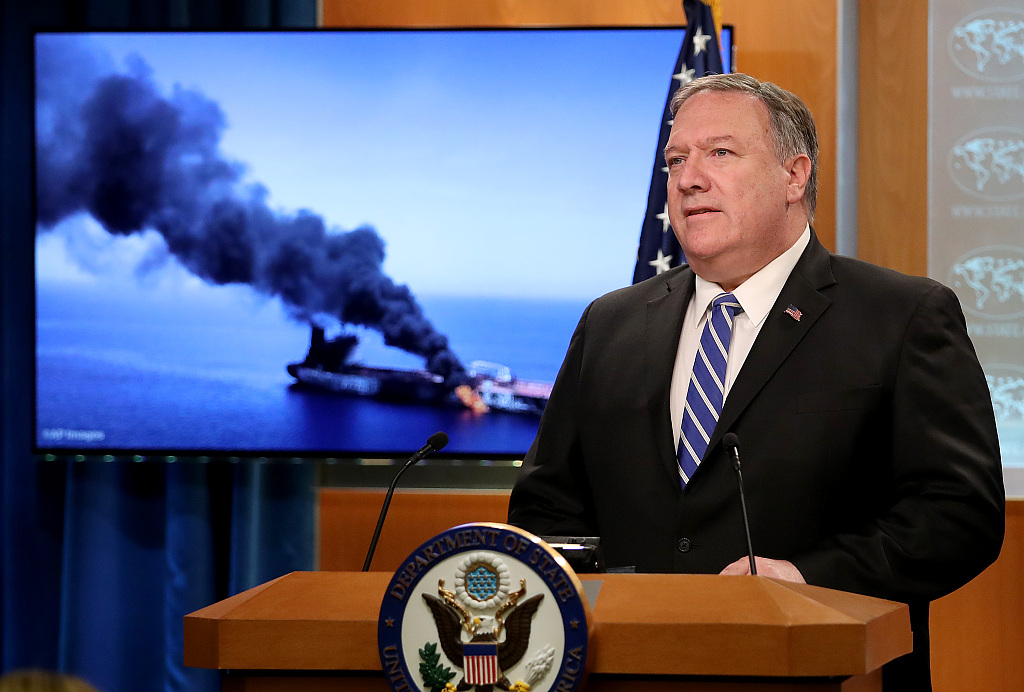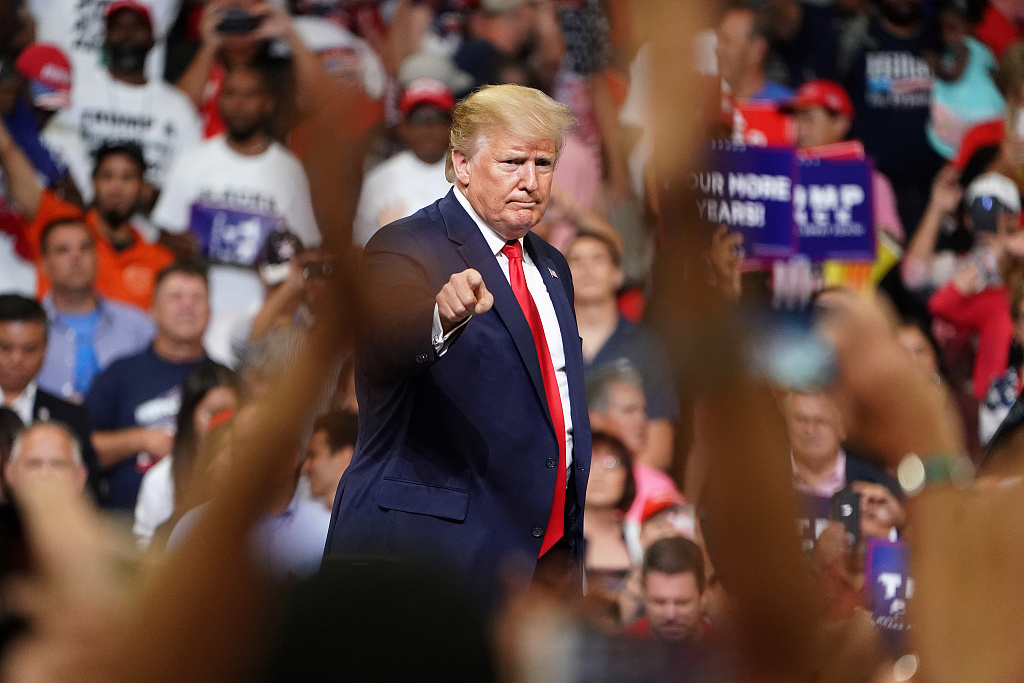Beyond the rhetoric, an Iran-US war is far from certain
- By Guy Burton
 0 Comment(s)
0 Comment(s) Print
Print E-mail China.org.cn, July 6, 2019
E-mail China.org.cn, July 6, 2019

On July 1, Iran's Foreign Minister Mohammad Javad Zarif announced the country had breached the limit of stockpiled uranium allowed under the Joint Comprehensive Plan of Action (JCPOA), an action posing a direct challenge to the U.S. government's opposition of Iran's nuclear program.
The question then is: how did this happen, and how might it end?
First, tensions have been a prominent feature of U.S.-Iranian relations for decades, embroiling its nuclear program for much of that time. In 2002 an opposition group revealed details of a number of previously undeclared nuclear installations. A decade of on-off talks and international sanctions ensued, reflecting strong distrust between Iran and the international community.
Despite this, in 2015, Iran and the P5+1 – the five UN Security Council members (U.S., Britain, France, Russia and China) and Germany – signed the JCPOA. In exchange for halting its nuclear program and exposing itself to rigorous scrutiny by the International Atomic Energy Agency (IAEA), Iran won relief from international sanctions and the opportunity to improve its weakened economy.
In the U.S., domestic criticism of the JCPOA was strong. Donald Trump, the Republican party's presidential candidate, challenged what he saw as a "bad deal." He and his party believed it was too limited, since it did not tackle Iran's expanding regional influence and interventions in Lebanon, Syria, Yemen, Iraq and Gaza.
Once elected, Trump continued this criticism, even as the IAEA reported Iran's continuing compliance. In May 2018 the U.S. withdrew from the JCPOA and reimposed sanctions from November. While the other signatories declared their continued support for the JCPOA, Trump offered a six-month waiver to several countries to give them time to find alternative oil supplies.
Despite expectations, the waivers were not renewed in April. Trump's decision increased pressure on the Iranian economy, which, according to an IMF report, shrank by 5% in 2018 and was expected to decline by a further 6% in 2019; inflation had risen by 40% while the currency had lost nearly two-thirds of its value.
Meanwhile, Trump ratcheted up his rhetoric on Iran, threatening worse was to come. Washington announced dispatch of an aircraft carrier group to the Gulf and 1,000 additional troops to the region.
Iran's leaders did not back down. In May, it warned the European signatories it would restart production of nuclear material, as a way to put pressure on them to take a stand against America.

In addition, a number of incidents have taken place in the Gulf over the past two months. Several tankers have been attacked. While the U.S. has been quick to attribute responsibility to Iran, conclusive evidence remains lacking. Meanwhile, in Saudi Arabia, a pipeline and airport have been attacked by drones operated by the Yemen-based Houthis.
So, how is the U.S.-Iranian confrontation likely to unfold? One possibility is that it will escalate if neither side is willing to back down. Against this is the fact that, despite his fiery rhetoric, Trump does not want war. He campaigned against U.S. interventions abroad; managing a new one in Iran while he is running for reelection in 2020 would be difficult.
At the same time, he seems unwilling to commit the number of troops needed to invade and occupy Iran. In 2003 the U.S. sent 150,000 soldiers to Iraq. Currently American troops number around 40,000 in the Gulf region as a whole.
Similarly, despite Iran's confrontational stance, there seems to be an unwillingness for direct confrontation. The Iranian leaders recognize their vulnerability in such a war. Instead, they would be more likely to support actions, perhaps by third parties that offer deniability.
Another possibility is a de-escalation. Trump has mixed his harsh words with offers to negotiate. He has also pointed to his ongoing dialogue with the Democratic People's Republic of Korea (DPRK) as a demonstration of his willingness to do so. For the moment, however, the Iranians see little point in talking.
They point to the JCPOA as a ready-made agreement to which the U.S. should return. They also see American demands as going beyond what the JCPOA was set up to do and so would be unwilling to step back from their present involvement in other regional struggles.

A third possibility was that Iran would wait out the Trump presidency, assuming he would fail to get a second term; but now, there's a chance he may be re-elected.
Consequently, Tehran has put pressure on the Europeans to keep the agreement alive by threatening to abandon parts of it. That may have prompted the speedier introduction of the Instrument in Support of Trade Exchanges, a workaround mechanism to enable European firms to operate in Iran without being subject to U.S. sanctions.
Similarly, it has been cultivating its closer ties with the other two P5 members, Russia and China. In response, there are indications that American officials have hinted at offering China a waiver. They have also presumably taken on board reservations among their Gulf Arab allies, like Saudi Arabia and the UAE, who do not want war in the region.
The options are numerous.
Guy Burton is a Visiting Fellow at the London School of Economics Middle East Centre and an Adjunct Professor at Vesalius College, Brussels.
Opinion articles reflect the views of their authors only, not necessarily those of China.org.cn.
If you would like to contribute, please contact us at opinion@china.org.cn.






Go to Forum >>0 Comment(s)